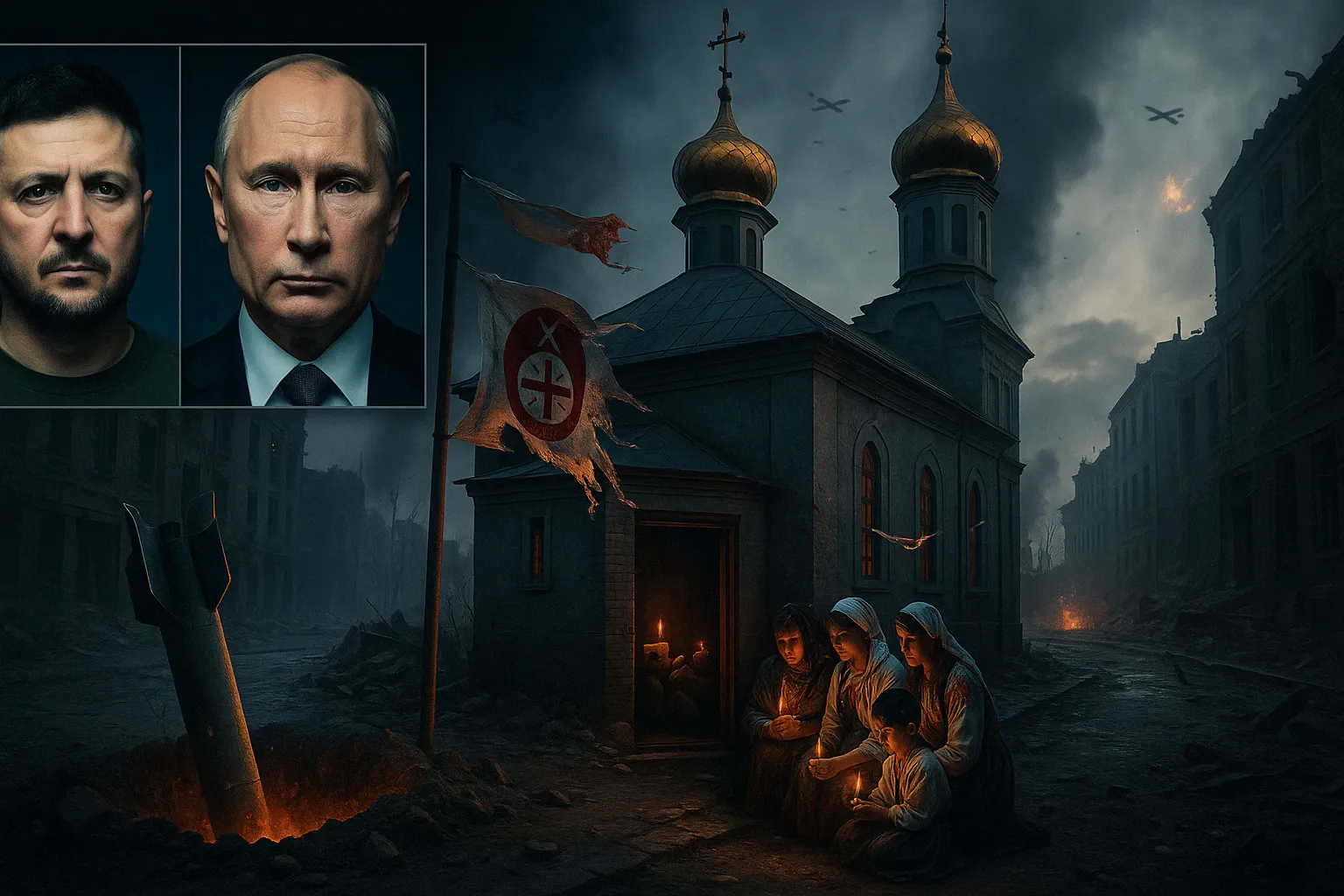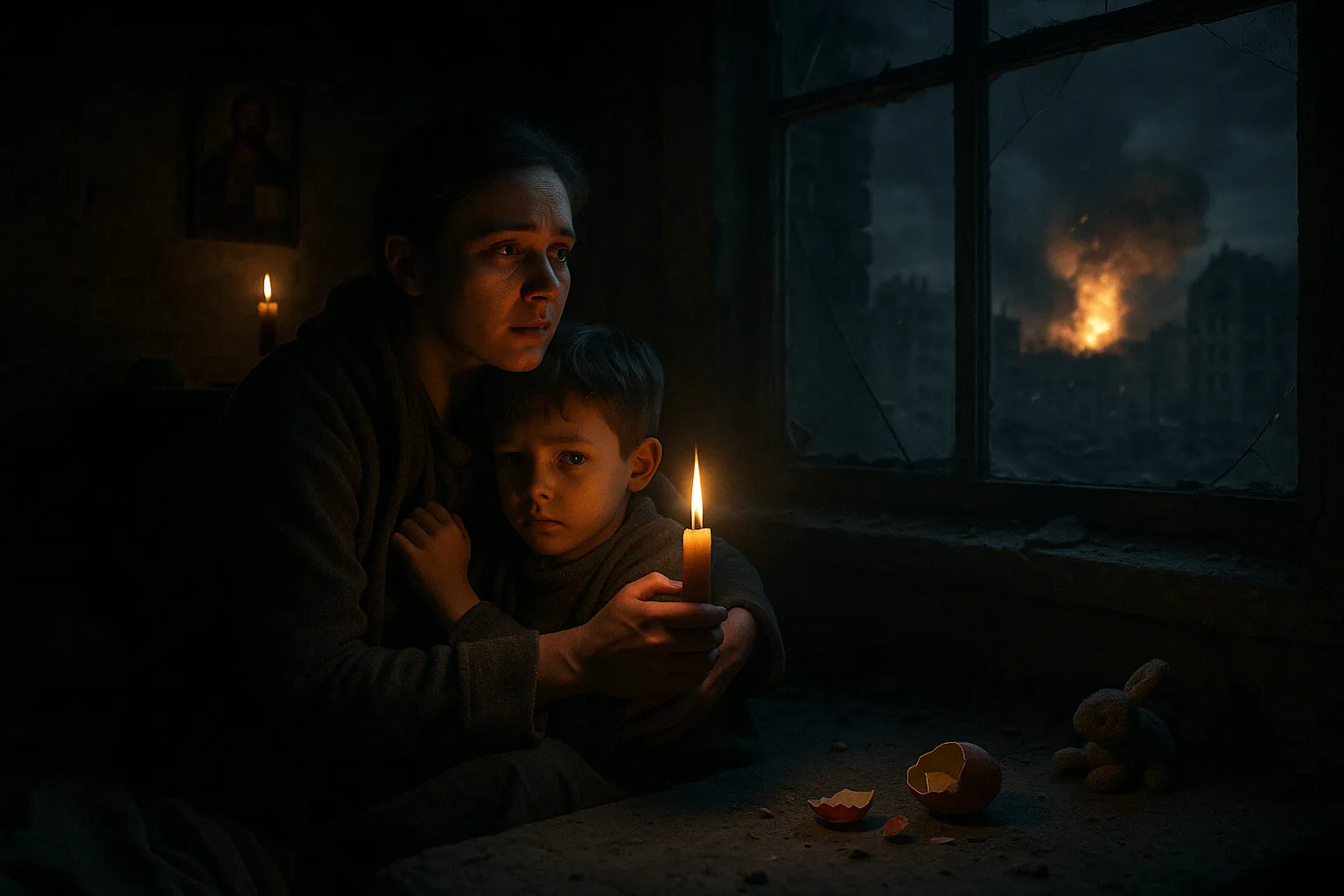Zelenskyy Accuses Russia of Violating 30-Hour Easter Truce with Continued Attacks in 2025

Ukrainian President Zelenskyy claims Russia defied Putin’s 30-hour Easter ceasefire, citing ongoing attacks in 2025. Tensions rise as hopes for peace waver.
Russia-Ukraine Conflict: Breaking the Easter Truce in 2025
Even the holiest of days wasn’t enough to pause the thunder of war. Ukrainian President Volodymyr Zelenskyy delivered a stinging accusation this Sunday, stating that Russia continued its attacks despite President Vladimir Putin announcing a 30-hour Easter truce. If you’re wondering whether peace negotiations could ever hold up in a storm like this—well, here’s your answer.
The 30-hour ceasefire, which started on Orthodox Holy Saturday and was supposed to stretch till late Sunday, turned out to be little more than wishful thinking. Reports from several Ukrainian cities suggest the sound of shelling echoed across the country, making residents question if a temporary pause was ever on the cards.
Ceasefire Turns Sour: Ongoing Attacks in Ukraine
Let’s be honest: the world’s seen countless truces collapse, but this one? It hit differently. Ukrainian officials shared details of overnight strikes in Kharkiv, Dnipro, and the Donetsk region. Footage posted on social media showed buildings with shattered windows; streets dusted with fresh rubble. Weren’t families just setting out painted eggs and sweet bread for the Easter table?
Zelenskyy’s statement didn’t mince words:
- He accused Moscow’s forces of “crying peace, but raining missiles.”
- He called attention to civilian deaths, highlighting the plight of those who just wanted “a quiet Easter Sunday.”
That hits home for anyone who’s had family meals interrupted by sirens, or spent holidays sheltering underground.
Peace Talks, Propaganda, or Both?
Here’s the odd twist: hours before the truce, Russian state media splashed headlines about Putin’s gesture of goodwill. Official statements described the ceasefire as proof of Moscow’s “commitment to humanitarian values.” Yet, if reality is anything to go by, words alone couldn’t keep the fighting at bay.
The Russian Ministry of Defence pushed back, labeling Ukrainian complaints as “war propaganda” and insisting it was Ukraine who broke the truce first. The back and forth feels almost like high-stakes tennis—except the stakes are lives, not trophies.
Some Western analysts called the offer a “PR move,” noting that similar truces have unraveled in years past. Others pointed out that, for many Ukrainians, the symbolism of Easter—a season of hope and rebirth—felt painfully hollow this year.
Why the Easter Truce Mattered
It’s easy, sometimes, to forget the human side hidden behind headlines. Orthodox Easter is a cornerstone of Ukrainian and Russian cultures. For families from Odesa to Moscow, it’s about coming together, lighting candles, and sharing stories around crowded tables.
Yet even as churches filled with prayers, the threat of violence complicated every tradition. In Kyiv, churchgoers were told to keep gatherings small and stay alert for air raid warnings. The most basic rituals—breaking bread, blessing baskets—came with a side order of anxiety.
What’s Next for Ukraine and Russia?
After another broken truce, people are left with more questions than answers. Will either side try another ceasefire? Can negotiations ever gain meaningful traction when trust is this frayed?
Zelenskyy’s message was clear: his government would push on for international support and security guarantees. Meanwhile, Russian officials insisted their own goals remained unchanged. Many outside observers see little chance for long-term peace without deeper talks—and, frankly, a little more honesty from both sides.
- The United Nations called for renewed diplomacy, but that’s a broken record by now.
- NATO members voiced support for Ukraine, but direct intervention remains off the table.
As the dust settles after another restless weekend, one thing is certain: headlines may move on, but the families living this story don’t get to turn the page so easily.
Finding Light Amid the Uncertainty
You know what? Hope’s a tough thing to kill. Across Ukraine, people still gathered—singing quieter, hugging tighter. Parents whispered ancient prayers and kids colored Easter eggs. Even with air raid sirens in the background, that stubborn human urge for normalcy just won’t quit.
For now, the truce may have failed, but the longing for peace continues. And who knows—maybe next Easter will bring better news, fewer broken promises, and a bit more harmony across Eastern Europe’s troubled borders.
For more on the ongoing crisis, visit the original story at India Today.





